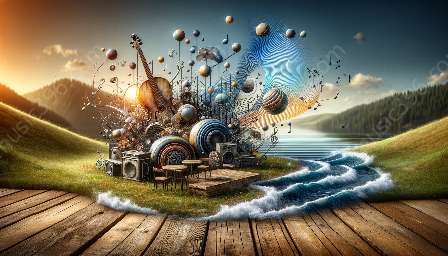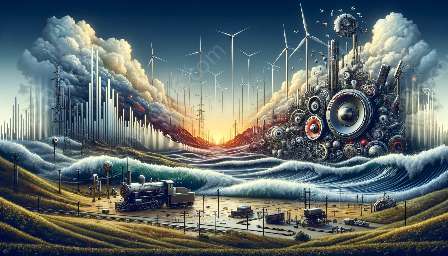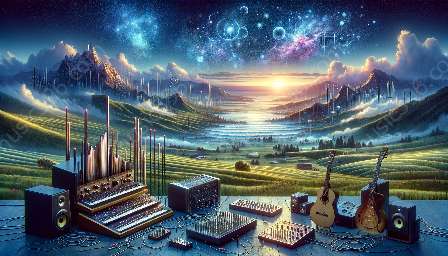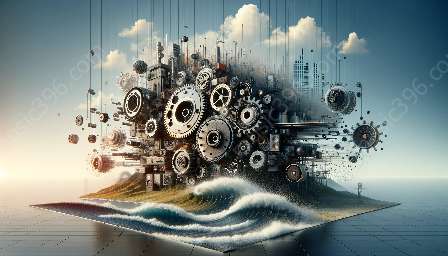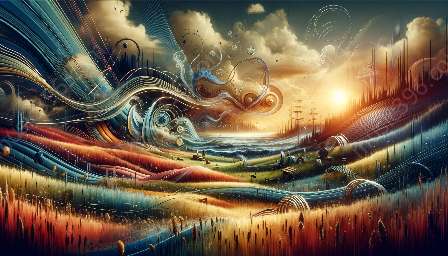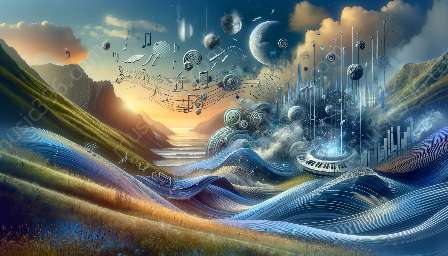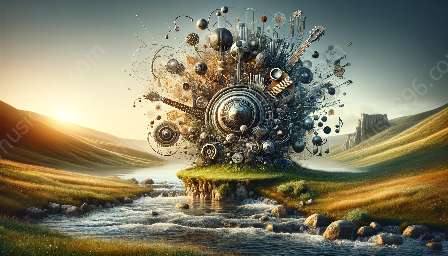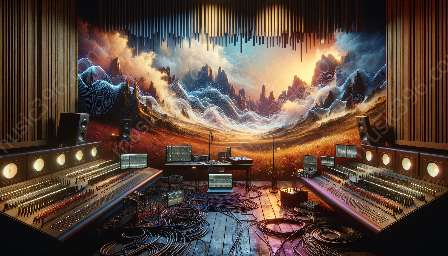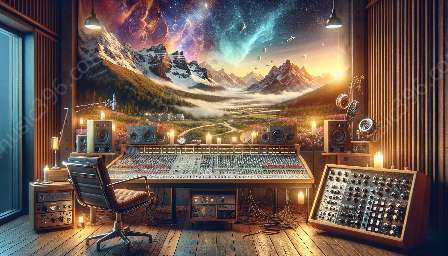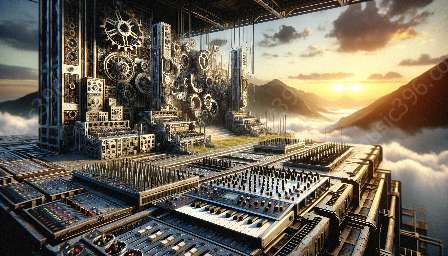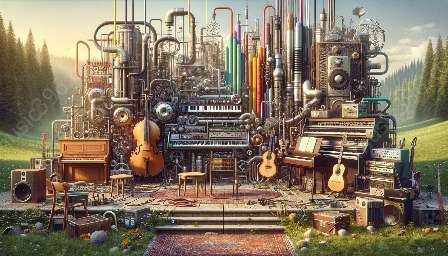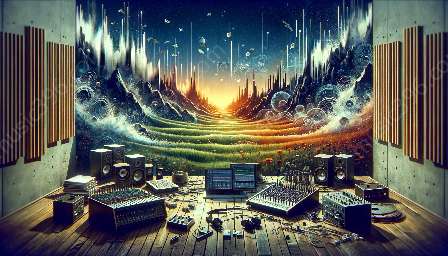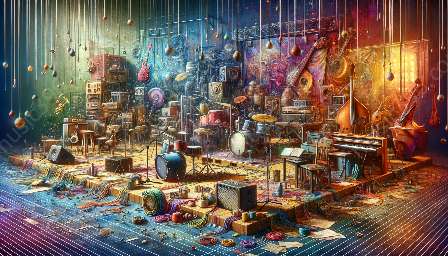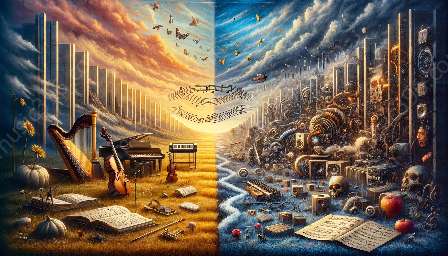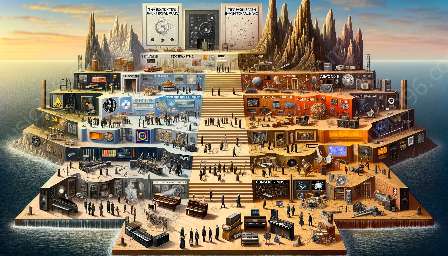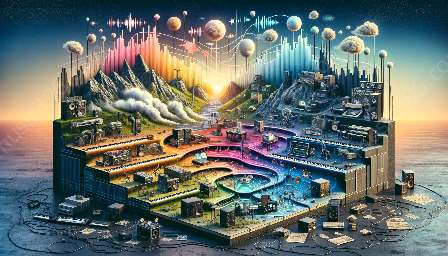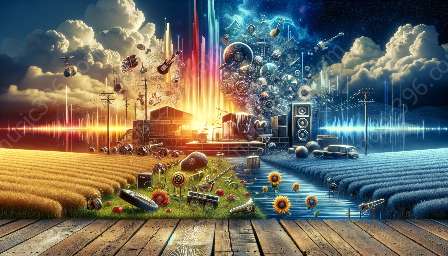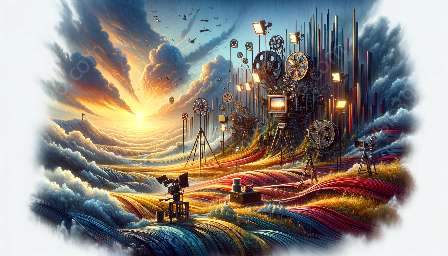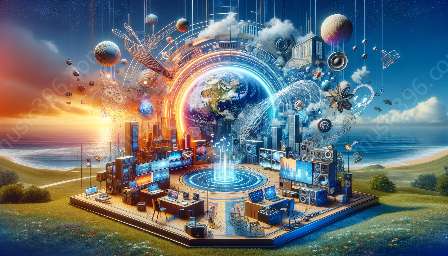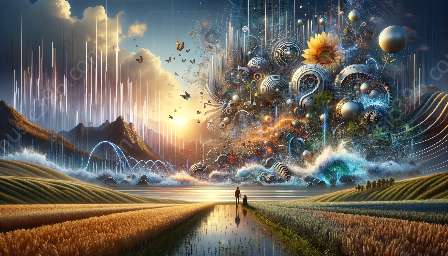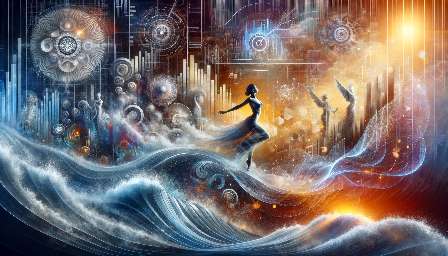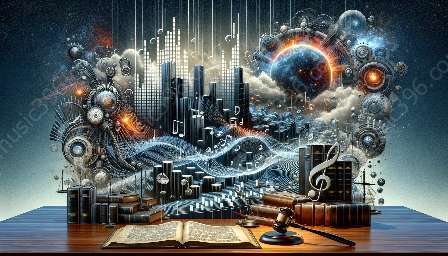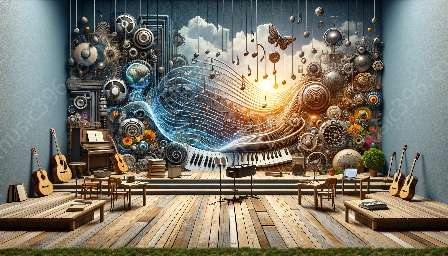Experimental music improvisation and live performances are prominent elements in the contemporary music scene, particularly in genres like experimental and industrial music. However, these forms of artistic expression often raise complex legal questions regarding intellectual property rights. In this comprehensive topic cluster, we will delve into the intersection of intellectual property law, experimental music improvisation, and live performances, examining how these areas intersect and the implications for musicians and creators in the experimental and industrial music scenes.
Understanding Intellectual Property Rights in Experimental Music
Experimental music is characterized by its unconventional approach to composition, performance, and sound production. This genre often places emphasis on innovation, pushing boundaries, and exploring unconventional sonic landscapes. As such, experimental musicians face unique challenges regarding intellectual property rights.
When it comes to experimental music, traditional notions of copyright and ownership can become blurred. The genre's emphasis on improvisation and exploration means that musical compositions and performances may be transient and ephemeral, making it difficult to establish clear ownership and authorship. Moreover, experimental musicians often rely on sampling, collage techniques, and the use of found sounds, raising questions about the legality of using pre-existing audio materials within their work.
Intellectual property law intersects with experimental music in various ways, including copyright, performance rights, and licensing. These legal considerations are crucial for experimental musicians and rights holders, as they impact the creation, dissemination, and monetization of their work. As a result, navigating the complexities of intellectual property law is essential for safeguarding the rights of experimental musicians and ensuring that they can continue to innovate and push artistic boundaries.
The Role of Live Performances in the Experimental Music Landscape
Live performances are integral to the experimental music scene, providing a platform for musicians to showcase their innovative and boundary-pushing sonic explorations. However, the intersection of live performances and intellectual property law brings a unique set of challenges and opportunities.
One of the key considerations for experimental musicians engaging in live performances is the protection of their original compositions and improvisations. While traditional copyright laws offer some level of protection for recorded works, the legal framework surrounding live performances, particularly improvised ones, can be more complex. Additionally, the use of visuals, multimedia elements, and interactive technologies in live experimental music performances raises further questions about intellectual property rights and the boundaries of artistic expression.
Simultaneously, live performances present opportunities for experimental musicians to engage with their audiences in new and innovative ways. This interaction can lead to the creation of unique and transformative experiences, blurring the lines between performer and audience. The legal implications of this interaction, particularly in the context of intellectual property rights, necessitate a nuanced understanding of how these performances are regulated and protected.
Challenges and Innovations in the Industrial Music Scene
Industrial music, with its roots in experimentation and sonic manipulation, presents its own set of challenges and innovations in the realm of intellectual property law. Industrial musicians often engage in unconventional sound design, audio manipulation, and the incorporation of various multimedia elements, resulting in a complex web of legal considerations.
One of the central challenges for industrial musicians is navigating the use of copyrighted materials, including samples, recordings, and visual elements, within their compositions and performances. The genre's penchant for repurposing and recontextualizing audio and visual content raises questions about fair use, licensing, and the potential infringement of intellectual property rights.
Furthermore, industrial musicians frequently collaborate with visual artists, multimedia designers, and performance artists to create immersive and multidisciplinary experiences. This collaboration introduces additional layers of complexity regarding ownership, attribution, and the rights associated with the combined artistic works. As such, industrial musicians must navigate the legal landscape surrounding intellectual property with a keen awareness of how their creative output intersects and interacts with various rights holders.
Navigating the Legal Landscape: Strategies and Best Practices
For experimental and industrial musicians seeking to navigate the complex intersection of intellectual property law and their artistic output, a proactive and informed approach is essential.
In the realm of experimental music improvisation and live performances, diligent documentation and record-keeping are critical for establishing ownership and authorship. Musicians should consider the use of performance rights organizations and licensing bodies to protect their live performances and ensure fair compensation for their creative endeavors. Additionally, exploring alternative licensing models and open frameworks can provide avenues for sharing and collaboration while maintaining respect for intellectual property rights.
Industrial musicians can benefit from engaging in clear and transparent communication with collaborators and rights holders to establish mutual understandings of ownership, usage rights, and intended artistic outcomes. Moreover, conscientious curation and curation of audiovisual content can help industrial musicians navigate the legal complexities of using pre-existing materials within their work, ensuring compliance with intellectual property laws.
Conclusion
The intersection of intellectual property law, experimental music improvisation, and live performances is a multifaceted and dynamic space that necessitates careful consideration and proactive engagement with legal frameworks. By fostering a nuanced understanding of intellectual property rights and exploring innovative approaches to creation and collaboration, experimental and industrial musicians can navigate the legal landscape while continuing to push the boundaries of artistic expression and sonic innovation.
By understanding how intellectual property law intersects with their creative endeavors, musicians can leverage legal frameworks to protect, share, and evolve their artistic output, contributing to the vibrant and diverse landscape of experimental and industrial music.

